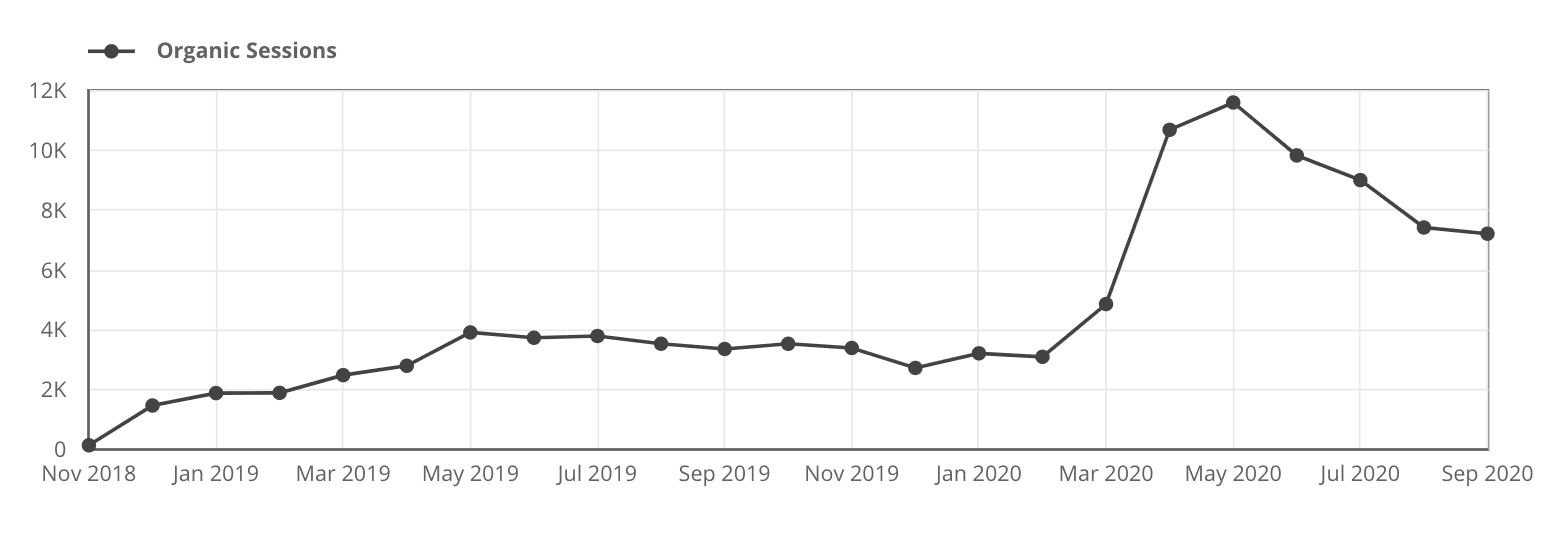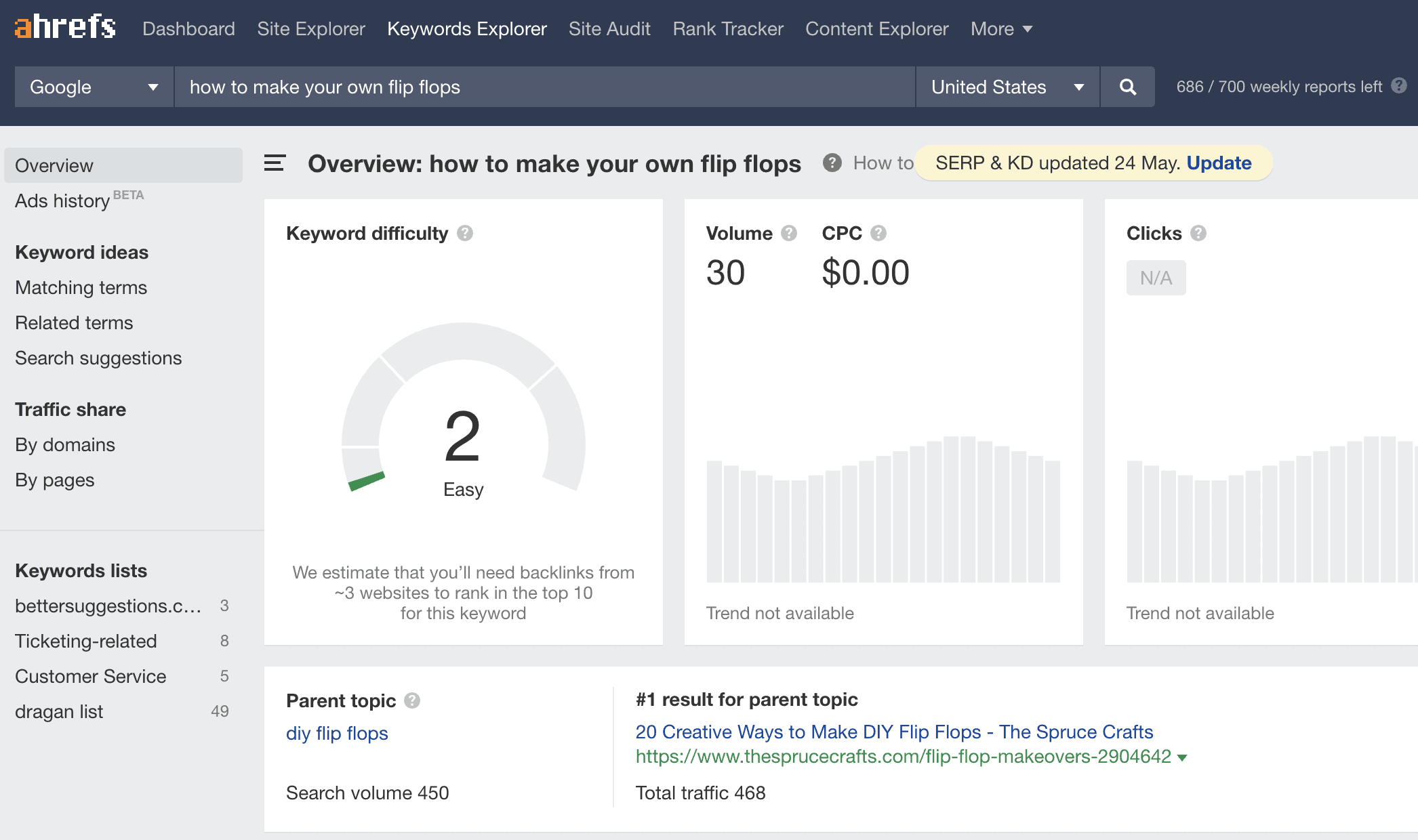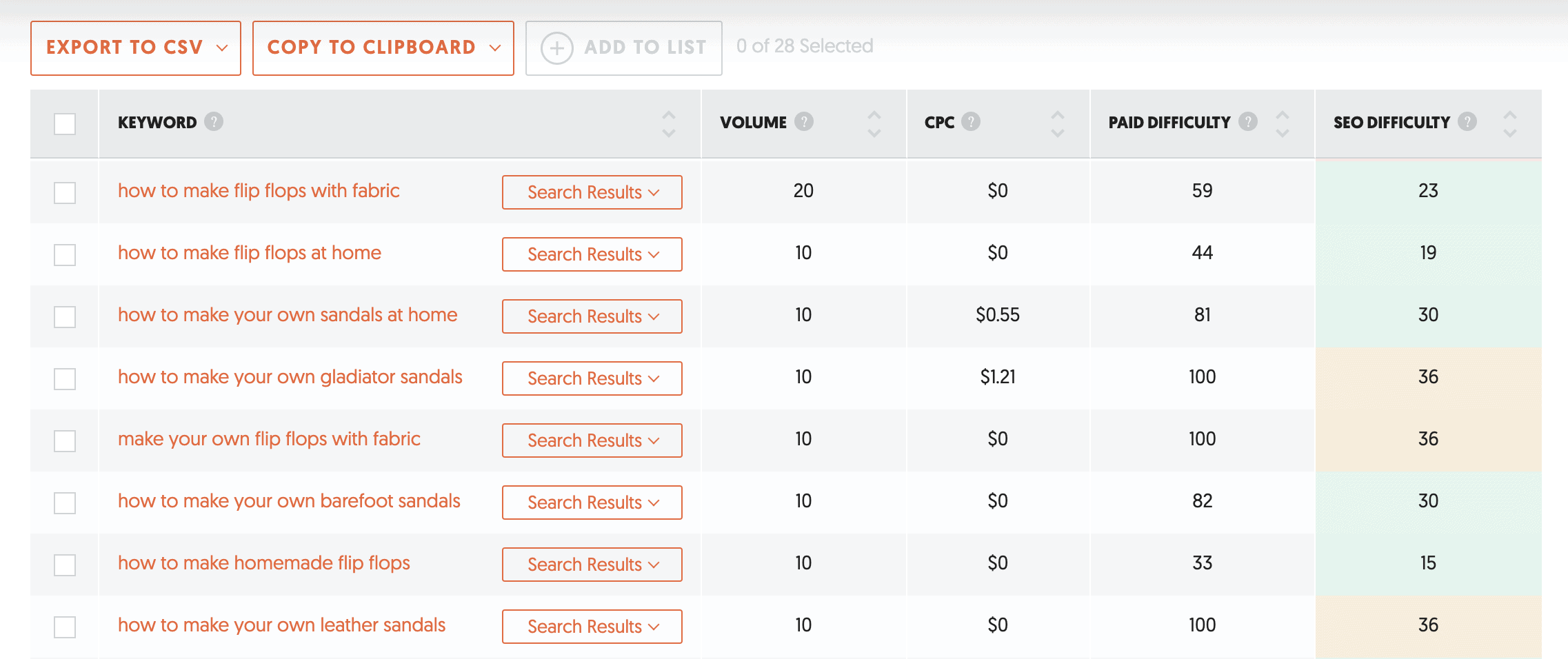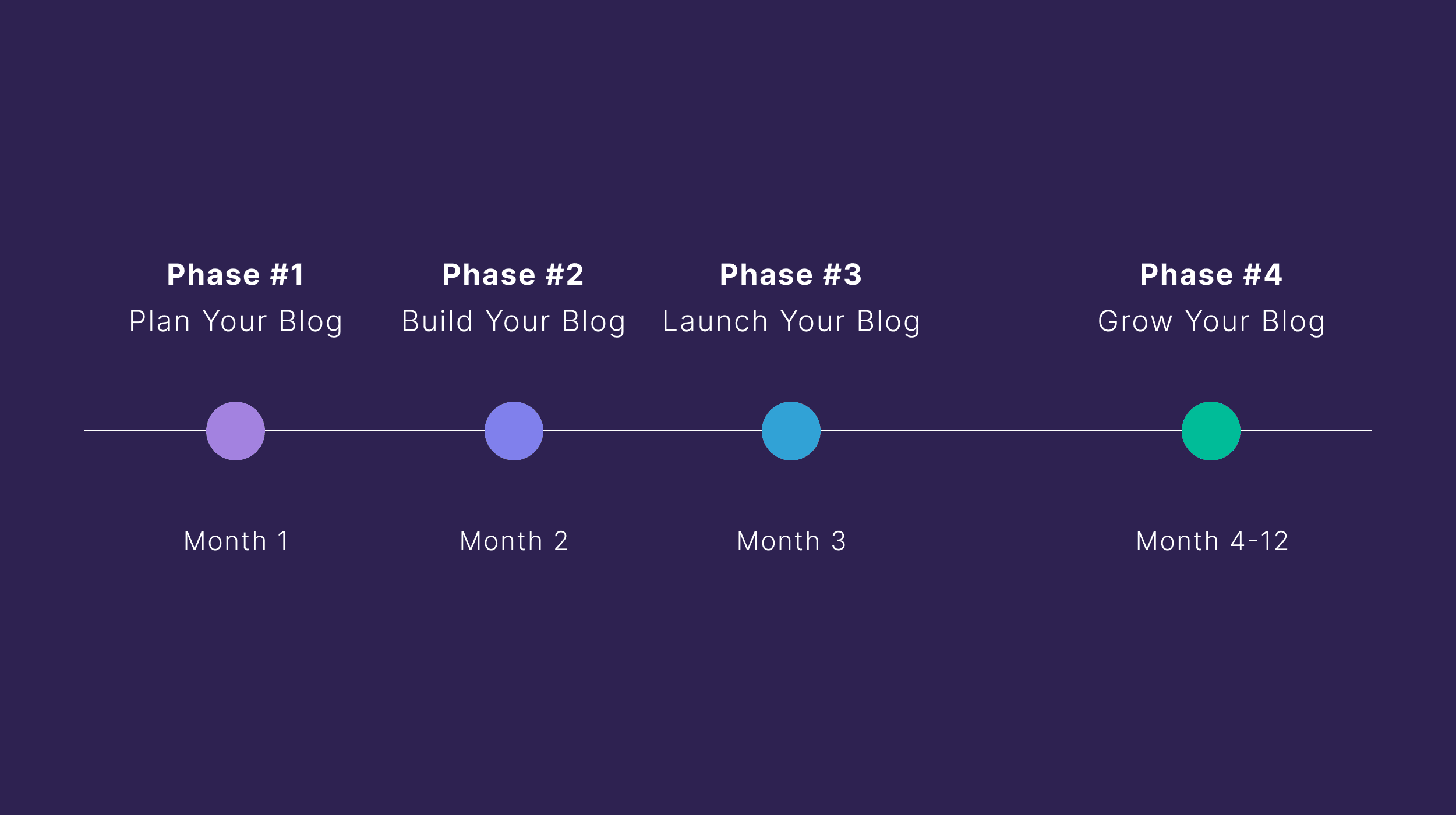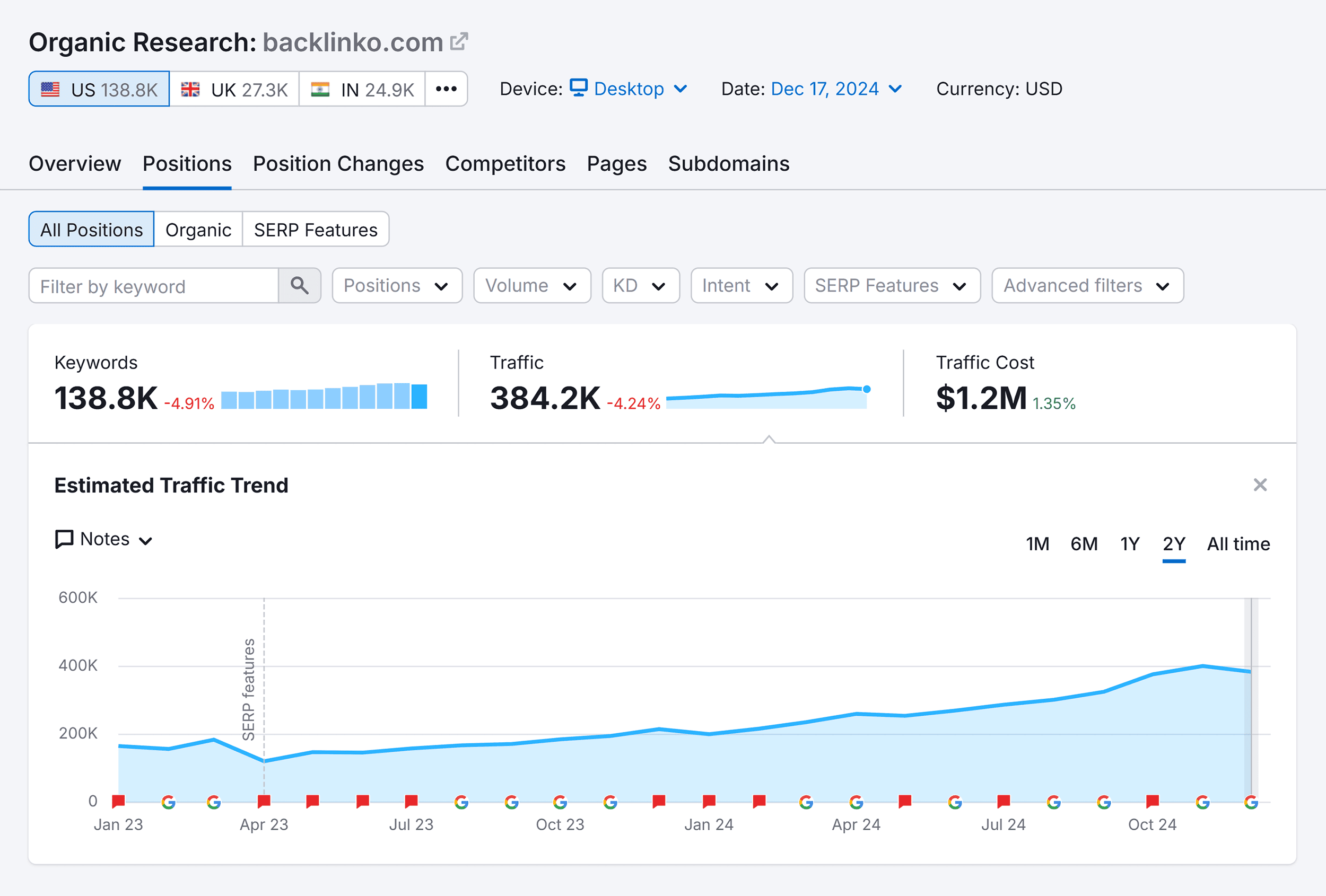We’ve all been there.
You’ve invested a ton of time (and probably some money) into your site’s SEO with high hopes you’d be crushing it in no time. Perhaps organic traffic started to rise – along with a strong sense of hope – but then it stagnated. Or maybe it never made progress at all.
Note: I’m not talking about big traffic losses or dips. That’s a different conversation. I’m referring to being stuck or plateaued for quite some time.
For example, here’s a site of mine I’ve been trying to grow recently. It has looked like this for months now:
If you’ve been here, I know how you feel.
But I’ve also had a lot of success scaling traffic and getting sites unstuck:
In my seven years doing SEO for clients and building my own sites, I’ve noticed four key reasons why a site’s organic traffic might be stuck (or never started moving in the first place). I’m hoping at least one of them creates a light bulb moment for you and is the start of a beautiful looking organic traffic graph.
4 Reasons Your Organic Traffic May Be Stuck
1. You’re Relying On Elementary SEO Tactics
This is a tough one for many to swallow, but I see it in my clients all the time – especially if you can’t seem to get the ball rolling at all.
Perhaps you’re a business owner or a marketing director. You’re incredibly talented in a lot of areas, but SEO isn’t your strong suit (which is totally fine – it probably shouldn’t be). Nonetheless, you can’t justify outsourcing or hiring for it, so you’ve taken a crack at it yourself. You’ve watched a bunch of videos online and maybe even taken a few courses.
Here’s what you’ve probably walked away with:
- A very basic understanding of keyword research
- Some on-page fundamentals (like using your keywords in your title and H1)
- A decent idea of what makes quality content
- Knowing how to add ALT text to your images
- A couple plugins (like Yoast) that might help you optimize your site
Here’s the deal: in most markets and industries, these basics probably aren’t going to get you ranking. Sure, it’s a great start, but unless you hit a stroke of luck, it’s not enough to earn significant traffic in competitive markets.
How to Fix It:
First of all: there’s no shame here. I’m a business owner myself and have tried to take on aspects of my business I should have outsourced from the beginning.
That said, if you still want to handle it yourself and grow your SEO chops, there is plenty of fantastic (and free) content on the web to get you there, just know it will take time, practice, and knowing where to look for really high quality content. Check out this stellar guide from Aleyda Solis to get a feel for which areas of your SEO development still need work.
If you recognize you don’t have the time, but you know SEO is a good channel for you, outsource it. Find an agency who specializes in your industry, who has proven results, and pay them. It will be worth every penny.
2. Your Target Keywords Are Too Competitive
If you have a lot of pages ranking on the second or third page, but can’t break into the top 5, this could be your problem.
Here’s the truth: if your site isn’t a topical authority (more on this below) or you don’t have a robust backlink profile, it will be tough to rank for competitive terms.
For example, if you’re a law firm looking to rank on the first page for “personal injury lawyer in [your city]” but you’ve never heavily invested in SEO or marketing, chances are slim you’re going to get there anytime soon. If I had to guess, the whole first page in your city is full of firms that spend thousands on SEO and marketing every month.
Or perhaps you’re a national brand trying to build out your blog and attract business through content marketing. You’ve got a solid content calendar and some great posts, but you can’t seem to get anything onto the first page. There’s a good chance you’re going after keywords that are too competitive.
How to Fix It:
Do some brief keyword research and pick out some really easy-to-rank-for keywords to tackle. Sometimes it just takes one post to break into the first page to get the ball rolling on other pages. Other times, you need to commit to strictly low competition keywords until you can build some authority. Don’t worry if they’re low volume keywords.
Not sure how to check for keyword competitiveness?
Paid tools like SEMRush and Ahrefs have pretty sound proprietary metrics for keyword difficulty that should give you an idea. Look for keywords with a difficulty rating in the 0-20 range to get the ball rolling.
If you can’t afford a paid tool, you can check out Ubersuggest, a free tool with similar metrics.
3. You Lack Authority and Trust
The words “authority” and “trust” get tossed around a lot in the SEO community. I’m not referring to Moz’s Domain Authority, I’m not directly referring to E-A-T, and I’m not suggesting search engines like Google have some kind of “authority score” for websites.
That said, it’s clear there are sites Google trusts and others they aren’t so sure about.
In short, to build trust and authority in the eyes of search engines, there are two primary routes:
- Establish topical authority on your subject matter
- Build a lot of backlinks from other trustworthy and relevant sites
Establishing topical authority stems from the theory that if you thoroughly cover your site’s primary subject matter, you organize your site in a logical structure, and you align yourself with Google’s understanding of a topic – then there’s a good chance you can develop some trust and earn rankings without much of a backlink profile.
Over the past ten years, Google has created and announced a number of updates and initiatives that value semantics and topical authority.
That said, most sites resort to link building to build authority and increase their chances of ranking.
How to Do it:
I won’t delve into the weeds of topical authority and semantic SEO, but you can check out this post or this one on entities to get a good primer.
I also don’t have the space to explore link building, but this post might help you get started.
4. You Have a Technical Issue Holding You Back
If your traffic has been near zero for some time, it’s very possible you have a technical issue preventing you from ranking.
How to Fix It:
A few things to look for (or to have a developer look into):
- Your robots.txt file is set up correctly and not giving any abnormal directives
- All of your pages are being indexed (Google the exact URL of some of your pages to check this)
- Your site speed is at least average (check out Google PageSpeed Insights)
You may read in other blog posts that missing ALT text or broken links are serious technical issues. You should fix these, but it’s highly unlikely your entire site is stalled because of a few broken links.
Break Out of Your Rut
Hopefully at least one of these seems relevant to your site. If not, as I mention in point #1, consider paying someone to take a look at your SEO efforts. Even if you’re an SEO yourself, another set of eyes can be helpful. It will be well worth the investment.
Here’s to your organic traffic!
Content Copyrights Belong to The Author. All Rights Reserved.
We're A Dallas Digital Marketing Agency That is Experts At Social Media Marketing, Website Design and Emarketing and Promotion.

